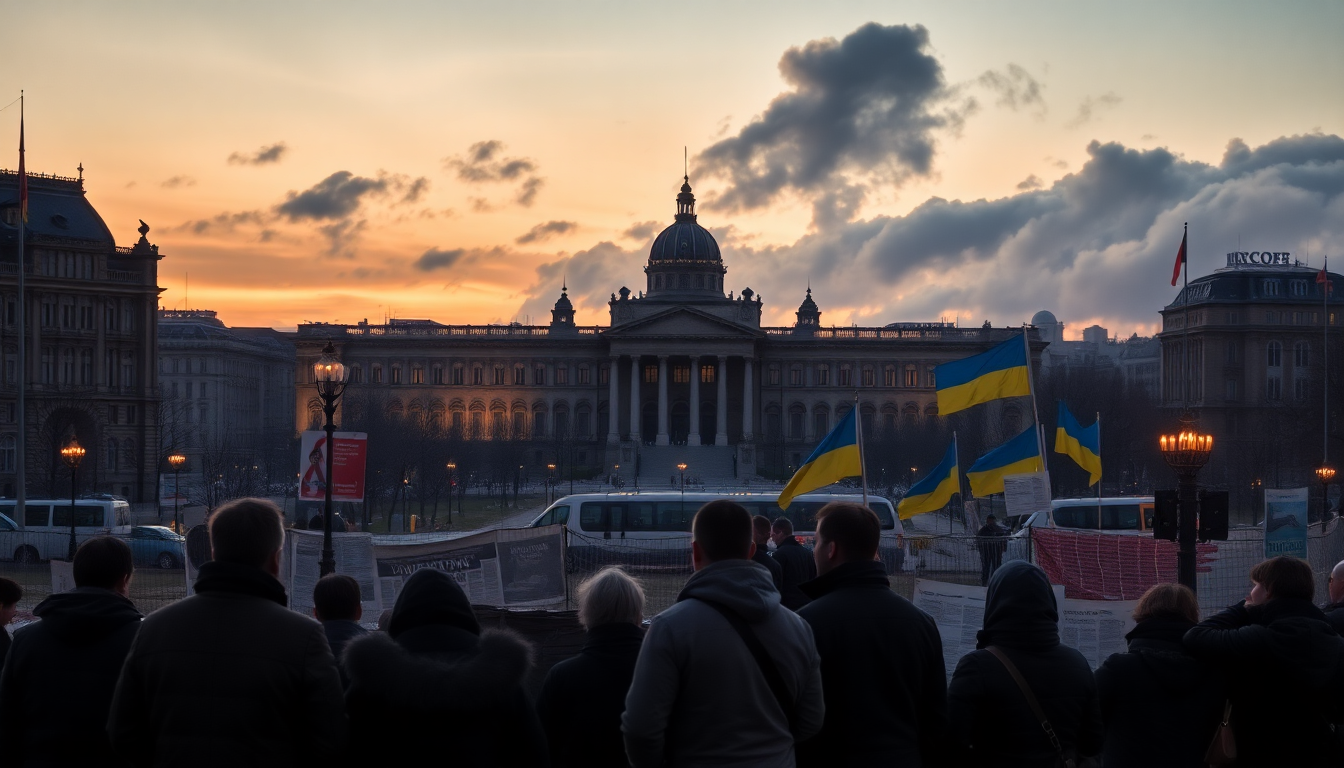Table of Contents
The ongoing conflict in Ukraine has captured global attention, especially as world leaders weigh in on the crisis. Recently, French President Emmanuel Macron described Russian President Vladimir Putin as ‘a predator’ and ‘an ogre at our doorstep.’ This striking language hints at a serious shift in tone, revealing Macron’s deep concerns about Russia’s intentions and the potential fallout for stability across Europe. So, what does this mean for the future of Ukraine and the international response? In this article, we’ll dive into Macron’s statements and the surrounding geopolitical currents, focusing on the paths toward peace and security guarantees for Ukraine.
The Current State of the Ukraine Conflict
As the war in Ukraine rages on, the international community finds itself grappling with how to effectively respond to Russia’s aggressive maneuvers. Macron’s recent comments reflect a growing skepticism about Putin’s readiness to pursue genuine peace talks. He argues that Russia’s heavy investment in military power since the conflict began indicates a long-term strategy favoring military options over diplomacy. This raises serious alarms not just for Ukraine, but for the safety of Europe as a whole—could further escalation be on the horizon?
During a recent NATO meeting, defense chiefs focused on developing potential security guarantees for Ukraine, underscoring the necessity of presenting a united front against ongoing threats. Macron stressed that these security measures aren’t just about protecting Ukraine; they’re crucial for the stability of Europe. The stakes couldn’t be higher—continued Russian aggression risks further destabilizing the region.
The Call for Security Guarantees
With the conflict intensifying, Macron is taking a proactive approach, spearheading efforts to establish security arrangements that would give Ukraine the assurances it needs. This initiative involves collaboration with European and international allies, aiming to create a framework that strengthens Ukraine’s defense capabilities. These proposed security guarantees would serve a dual purpose: deterring future Russian aggression and helping Ukraine reclaim its sovereignty and territorial integrity.
Macron’s warnings about the threat Putin poses resonate with many leaders who recognize the urgent need for a strong response. He emphasizes that being naive in dealings with Putin could have serious repercussions for European nations. His remarks serve as a rallying cry for Europe to consolidate its defense strategies and reaffirm its commitment to supporting Ukraine amid the ongoing conflict.
Implications for Future Diplomatic Efforts
The geopolitical landscape surrounding the Ukraine crisis is intricate, with leaders expressing a range of opinions on the best way forward. While Macron’s stance leans toward caution and skepticism about Putin’s intentions, others—including former U.S. President Donald Trump—have hinted at a possible openness from Putin regarding peace talks. How do we navigate these differing perspectives to find a common approach?
As discussions about a potential meeting between Putin and Ukrainian President Volodymyr Zelenskyy unfold, the international community is left to wonder about the feasibility of any peace agreement. Macron has made it clear that any such arrangement must include solid security guarantees to ensure Ukraine’s ability to defend itself against future threats. The expectation is to have draft plans in motion soon—time is of the essence.
As the conflict continues, the need for clear communication and strategic planning among allied nations becomes ever more critical. The journey to peace will demand not just diplomatic engagement, but a sustained commitment to bolstering Ukraine’s defense efforts. The coming months are set to be pivotal in shaping Europe’s future security framework and determining the trajectory of the conflict in Ukraine. Are we prepared to face the challenges ahead?


